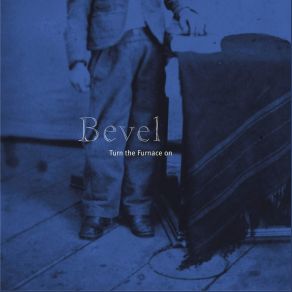Turn the Furnace On
Download links and information about Turn the Furnace On by Bevel. This album was released in 2000 and it belongs to Rock, Indie Rock, Alternative genres. It contains 12 tracks with total duration of 36:36 minutes.

|
|
|---|---|
| Artist: | Bevel |
| Release date: | 2000 |
| Genre: | Rock, Indie Rock, Alternative |
| Tracks: | 12 |
| Duration: | 36:36 |
| Buy it NOW at: | |
| Buy on iTunes $9.99 | |
Tracks
[Edit]| No. | Title | Length |
|---|---|---|
| 1. | Presence | 2:38 |
| 2. | Steeple | 2:26 |
| 3. | Parachutes in September | 4:00 |
| 4. | The Husband | 1:51 |
| 5. | Our Winter Correspondence | 4:46 |
| 6. | Trench | 2:43 |
| 7. | Song for Janusz (King of Children) | 2:54 |
| 8. | In the Flavian Ampitheatre | 3:41 |
| 9. | Kite Lesson for the Dying | 1:37 |
| 10. | Blackbird | 2:52 |
| 11. | Broken Staircase | 3:04 |
| 12. | Convalescence | 4:04 |
Details
[Edit]A delicate set of avant-folk, the first solo outing from Drunk's Via Nuon channels displaced vulnerability and picturesque despair through the marriage of traditional folk instrumentation and starkly inventive arrangements. While most of the tracks feature some form of alternately strummed or fingerpicked acoustic guitar, the occasional creaky violin or humming keyboard adds a decidedly modern color to Nuon's morose songwriting. An interesting marriage of plucked banjo and crystal clear synth tones intermingle in "Parachutes in September," quickly followed by an unadorned country-blues counterpoint in "The Husband." On the appropriately titled "Our Winter Correspondence," with cool icy guitar tones descending on a frigid landscape, Nuon predominantly works with dark hues from his deceptively florid palette. As his voice encompasses a range similar to Lou Reed and an expressiveness reminiscent of Elizabeth Cotten, it ends up being a defining feature in creating the detached atmosphere that the album flourishes in. Realistically, though, many of these songs wouldn't be totally out of place on the first Bob Dylan or Leonard Cohen albums, with the fluid, rolling fingerpicking of "Kite Lesson for the Dying" being a cousin to "Don't Think Twice, It's Alright" and "Broken Staircase" miming Cohen's penchant for obscure observation. Still, Nuon arrives as a distinctively inventive artist on the strength of his own talents.